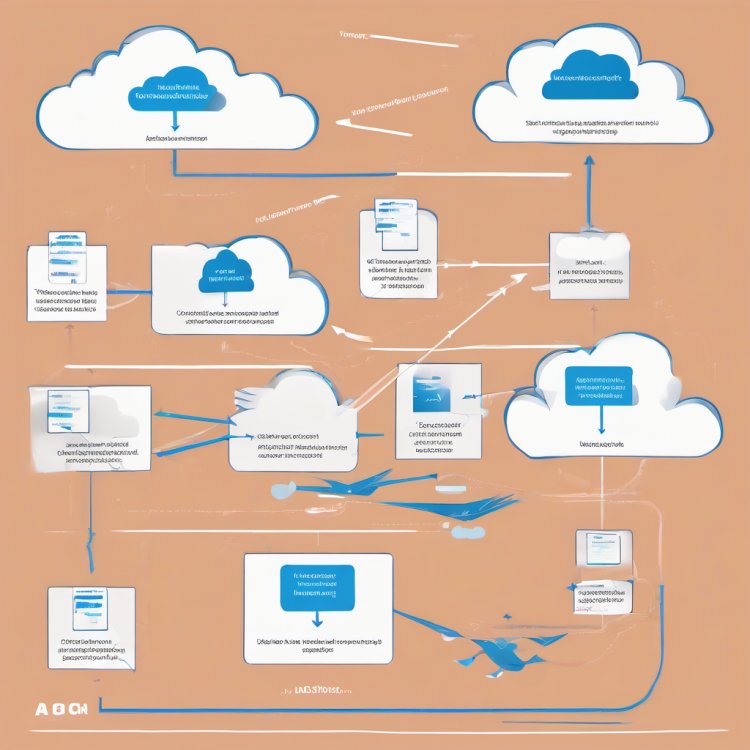Transforming Business with Cloud Computing Services: A 2024 Guide
how cloud computing services transform businesses in 2024 with this comprehensive guide.

Anchor Links for Easy Navigation
- Understanding Cloud Computing Services
- Key Benefits of Cloud Computing Services
- Popular Cloud Computing Service Providers
- Implementing Cloud Computing Services
- Security Considerations in Cloud Computing
- Emerging Trends in Cloud Computing Services
- Industry-Specific Cloud Solutions
- Conclusion
Transforming Business with Cloud Computing Services: A 2024 Guide

In today's digital age, cloud computing services have revolutionized the way businesses operate, offering unprecedented flexibility, scalability, and cost-efficiency. This comprehensive guide explores how cloud services are reshaping industries and providing competitive advantages to organizations of all sizes.
Understanding Cloud Computing Services

Cloud computing services encompass a wide range of on-demand resources delivered over the internet. These services typically fall into three categories:
- Infrastructure as a Service (IaaS): Provides virtualized computing resources over the internet.
- Platform as a Service (PaaS): Offers hardware and software tools over the internet, typically for application development.
- Software as a Service (SaaS): Delivers software applications over the internet, on a subscription basis.
Key Benefits of Cloud Computing Services
Cloud computing services offer numerous benefits that make them essential for modern businesses:
- Cost Efficiency: Reduces capital expenses on hardware and software, shifting to an operational expense model.
- Scalability: Allows businesses to easily scale resources up or down based on demand.
- Flexibility: Enables access to data and applications from anywhere, supporting remote work and global operations.
- Automatic Updates: Cloud providers manage system maintenance and updates, ensuring you always have the latest features and security patches.
- Disaster Recovery: Offers robust backup and recovery solutions, minimizing downtime and data loss.
Popular Cloud Computing Service Providers

The cloud computing market is dominated by several key players, each offering unique advantages:
- Amazon Web Services (AWS): Known for its comprehensive suite of services and global infrastructure.
- Microsoft Azure: Integrates seamlessly with Microsoft products and offers strong hybrid cloud capabilities.
- Google Cloud Platform: Excels in big data analytics and machine learning services.
- IBM Cloud: Focuses on enterprise-grade cloud solutions and AI capabilities.
Implementing Cloud Computing Services

Transitioning to cloud services requires careful planning:
- Assessment: Evaluate your current IT infrastructure and identify which applications and data should move to the cloud.
- Strategy Development: Create a comprehensive cloud migration strategy aligned with your business goals.
- Provider Selection: Choose the right cloud service provider based on your specific needs and budget.
- Migration: Move applications and data to the cloud, often in phases to minimize disruption.
- Optimization: Continuously monitor and optimize your cloud usage to maximize benefits and control costs.
Security Considerations in Cloud Computing

While cloud providers offer robust security measures, businesses must also take steps to protect their data:
- Implement strong access controls and multi-factor authentication.
- Encrypt sensitive data both in transit and at rest.
- Regularly audit and monitor cloud usage and access.
- Ensure compliance with relevant data protection regulations (e.g., GDPR, HIPAA).
Emerging Trends in Cloud Computing Services

The cloud computing landscape continues to evolve:
- Edge Computing: Brings computation and data storage closer to the point of use, reducing latency.
- Serverless Computing: Allows developers to build and run applications without managing servers.
- Multi-cloud and Hybrid Cloud Strategies: Combines multiple cloud services or integrates private and public clouds for optimal performance and cost-efficiency.
- AI and Machine Learning as a Service: Offers advanced AI capabilities without the need for extensive in-house expertise.
Industry-Specific Cloud Solutions

Cloud computing services are being tailored to meet the unique needs of various industries:
- Healthcare: HIPAA-compliant cloud storage and telemedicine platforms.
- Finance: Secure financial data management and real-time analytics.
- Retail: E-commerce platforms and inventory management systems.
- Manufacturing: IoT integration and supply chain optimization.
Conclusion
Cloud computing services have become an integral part of modern business strategy, offering unparalleled advantages in terms of efficiency, scalability, and innovation. As technology continues to advance, cloud services will play an increasingly crucial role in driving digital transformation across industries. By carefully selecting and implementing the right cloud solutions, businesses can position themselves for success in an increasingly competitive and fast-paced digital landscape.
What's Your Reaction?






















